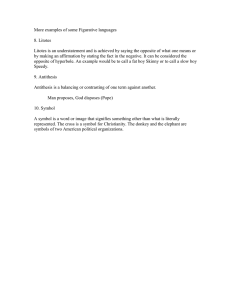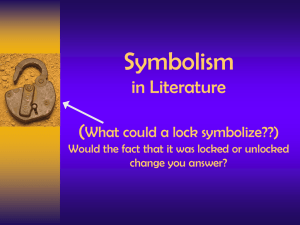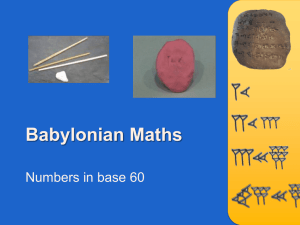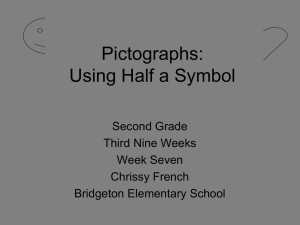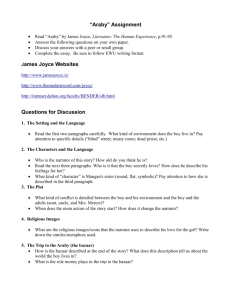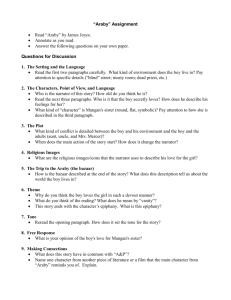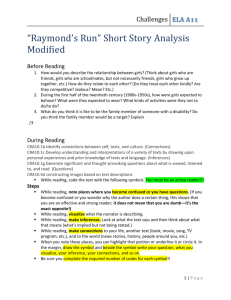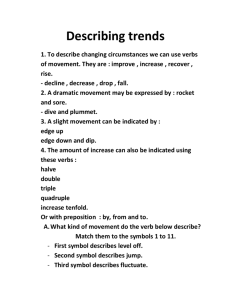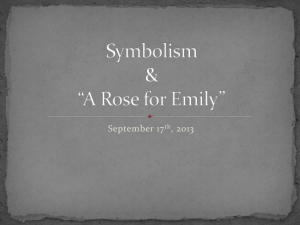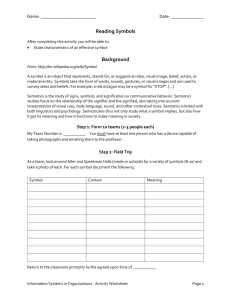File the go bus, a boy, and - Thames Valley District School Board
advertisement
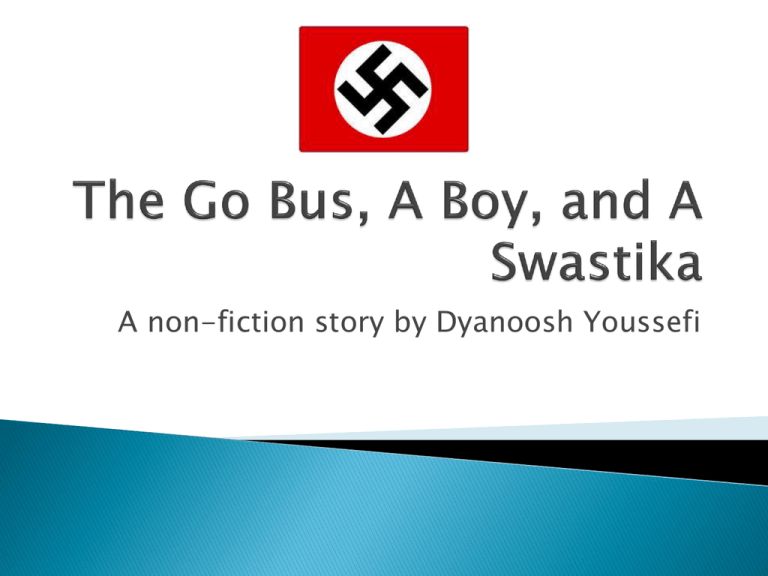
A non-fiction story by Dyanoosh Youssefi Does Canada have anything to fear from skinheads, neo-Nazis, swastika wearers and Holocaust deniers? Should the views of these people be censored? Have you ever stood up to a stranger over something you disapproved of? innocuous penitent earnestness insignia compelled Gives little info about the narrator Teenager (old enough to work but still in school) Boy or Girl? Does it matter? Emotional/Sensitive: “My heart was beating faster than usual and my hands were shaking in shock, anger and fright.” Passionate: “Didn’t he know what the symbol meant? Didn’t he know how many people died because of it? Didn’t he know of the inhumanity and absolute…horror and evil that the symbol represented?” Responsible: normally she would not talk to a stranger, but feels compelled under the circumstances. “But you’ve got to confront him. ‘I told myself. Finally, with my heart beating furiously, I looked him in the eye and waved my hand to get his attention.” “I am always hesitant to talk to people for the first time, especially if I am the one starting the conversation.” The ellipsis at the bottom of the first column where she can’t find the words to express her outrage Knowledgeable: “It is the symbol of the Nazis. The people who killed thousands in the war. They put them in ovens. They burned them to death. They gassed them. They made them dig their own graves and then shot them. They shaved people’s hair and used it to make clothing.” Also realizes the boy put the sign on his knapsack because of ignorance which usually comes from faulty education. Narrator’s earnestness and passion about the subject comes through, especially at the end. But the encounter with the boy is told in an almost detached tone; impartial: the narrator knows how important it is to tell the story without bias 15 or 16, cool, good-looking Light brown, almost blond hair Light eyes sparkled with vigor and youth Cute Typical teenager Listening to walkman “He looked so innocent. I knew he was.” “It was a sweet smile.” “I thought to myself that he probably knows a bit about the symbol. But he thinks it is cool, like a peace symbol. Hey, if the sign was not representative of so much…I would think that it is a neat sign too. But he just thinks the sign is cool and does not really know.” She knows that if you want to influence a person, you have to do it in a kind way; she wants to let the boy know she has no hard feelings, that she doesn’t harbour a grudge. “He was not smiling anymore, but he did not look penitent either. He just nodded his head a few times and said ‘O.K.’ and leaned back in his seat and put his earplugs back in.” “Ignorance that could result in the repetition of history.”
